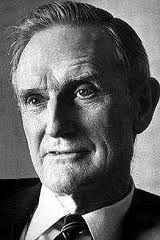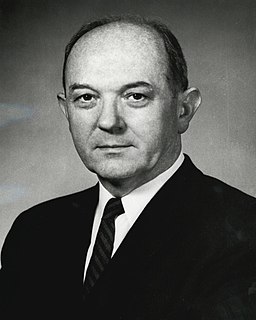A Quote by John D. Rockefeller III
The arts are not for the privileged few, but for the many. Their place is not on the periphery of daily life, but at its center. They should function not merely as another form of entertainment but, rather, should contribute significantly to our well being and happiness.
Related Quotes
Learning should be engaging. Testing should not be the be all and end all. All students should have a broad curriculum that includes the arts and enrichment. Students should have opportunities to work in teams and engage in project-based learning. And student and family well-being should be front and center.
The arts, instead of quaking along the periphery of our policy concerns, must push boldly into the core of policy. The arts are a response to our individuality and our nature and help to shape our identity. The arts are not a frill and should not be treated as such. They have the potential to become the driving force for healing division and divisiveness.
If I perceive in another person mainly the surface, I perceive mainly the differences,that which separates us. If I penetrate to the core, i perceive our identity, the fact of our brotherhood. This relatedness from center to center - instead of that from periphery to periphery - is 'central relatedness'.
When we live moment to moment, we place ourselves at the center of life, where infinite wisdom abides, rather than on the periphery, where things are forever changing and we are susceptible to the vagaries of the world. It is in our awareness each moment of our oneness with God that our inner peace and greatest strength lie.
Homes should be an anchor, a safe harbor, a place of refuge, a place where families dwell together, a place where children are loved. In the home, parents should teach their children the great lessons of life. Home should be the center of one’s earthly experience, where love and mutual respect are appropriately blended.
Life seems to be a process of replacing one anxiety with another and substituting one desire for another--which is not to say that we should never strive to overcome any of our anxieties or fulfil any of our desires, but rather to suggest that we should perhaps build into our strivings an awareness of the way our goals promise us a respite and a resolution that they cannot, by definition, deliver.
A popular feel for scientific endeavors should, if possible, be restored given the needs of the twenty-first century. This does not mean that every literature major should take a watered-down physics course or that a corporate lawyer should stay abreast of quantum mechanics. Rather, it means that an appreciation for the methods of science is a useful asset for a responsible citizenry. What science teaches us, very significantly, is the correlation between factual evidence and general theories, something well illustrated in Einstein's life.
































